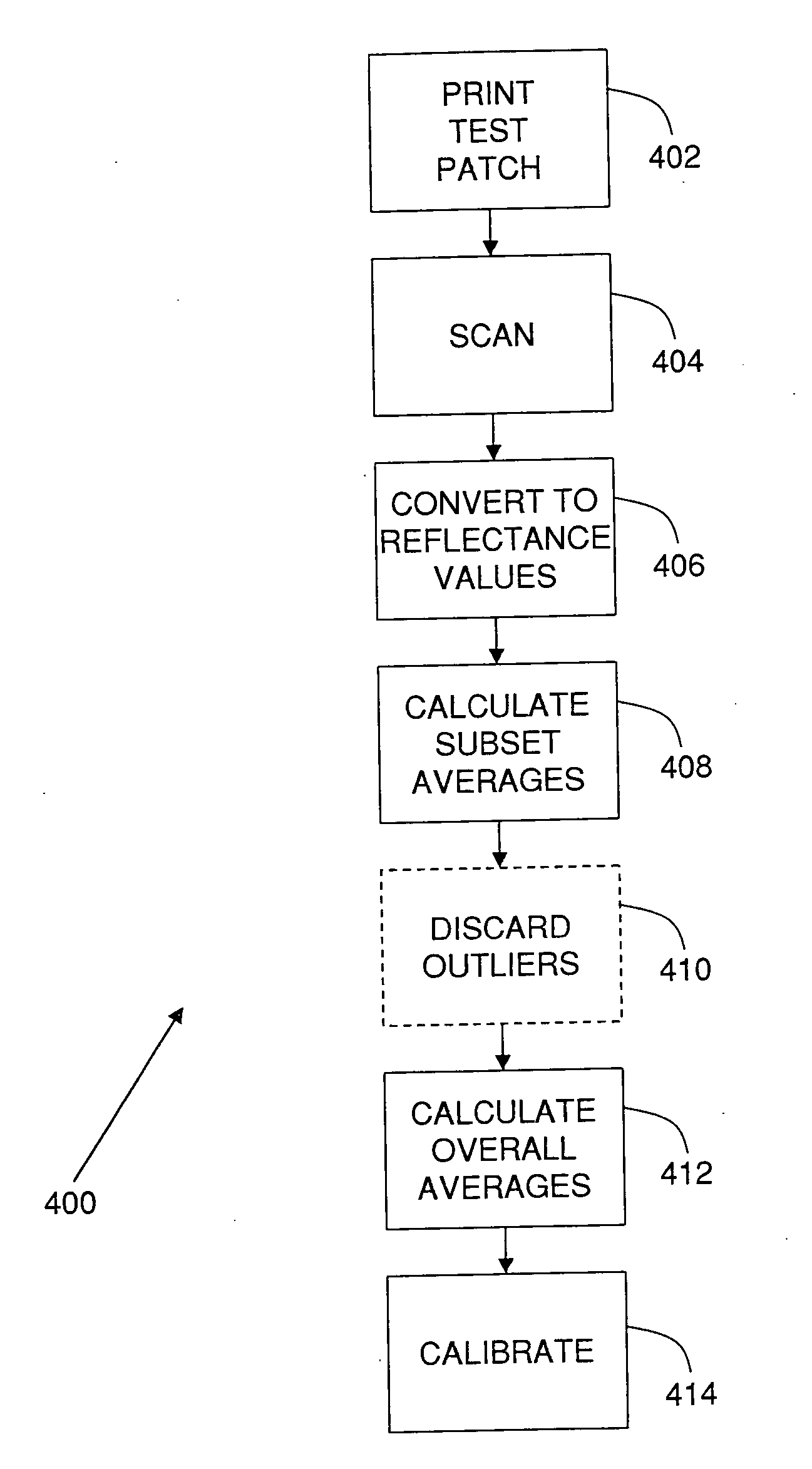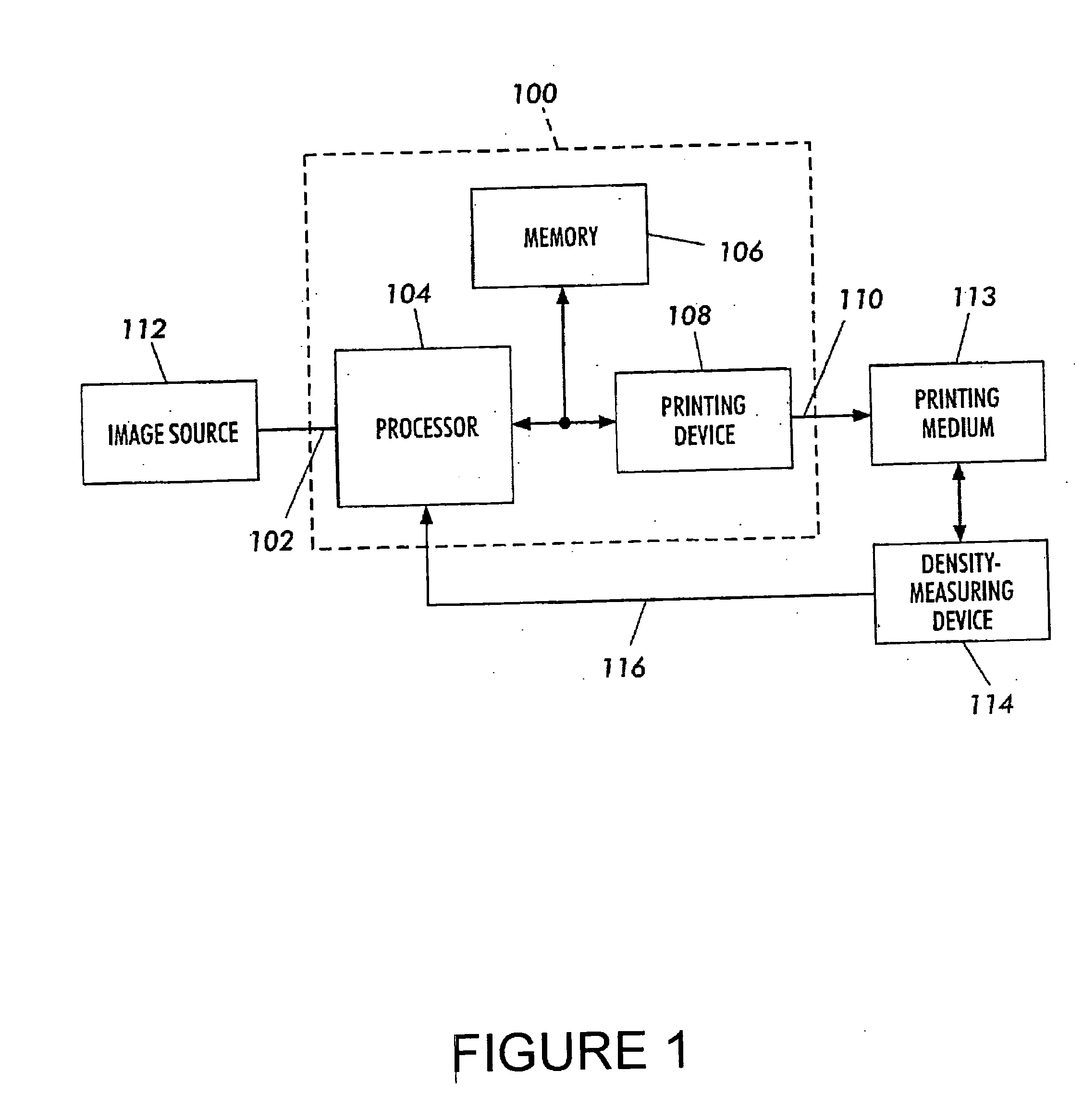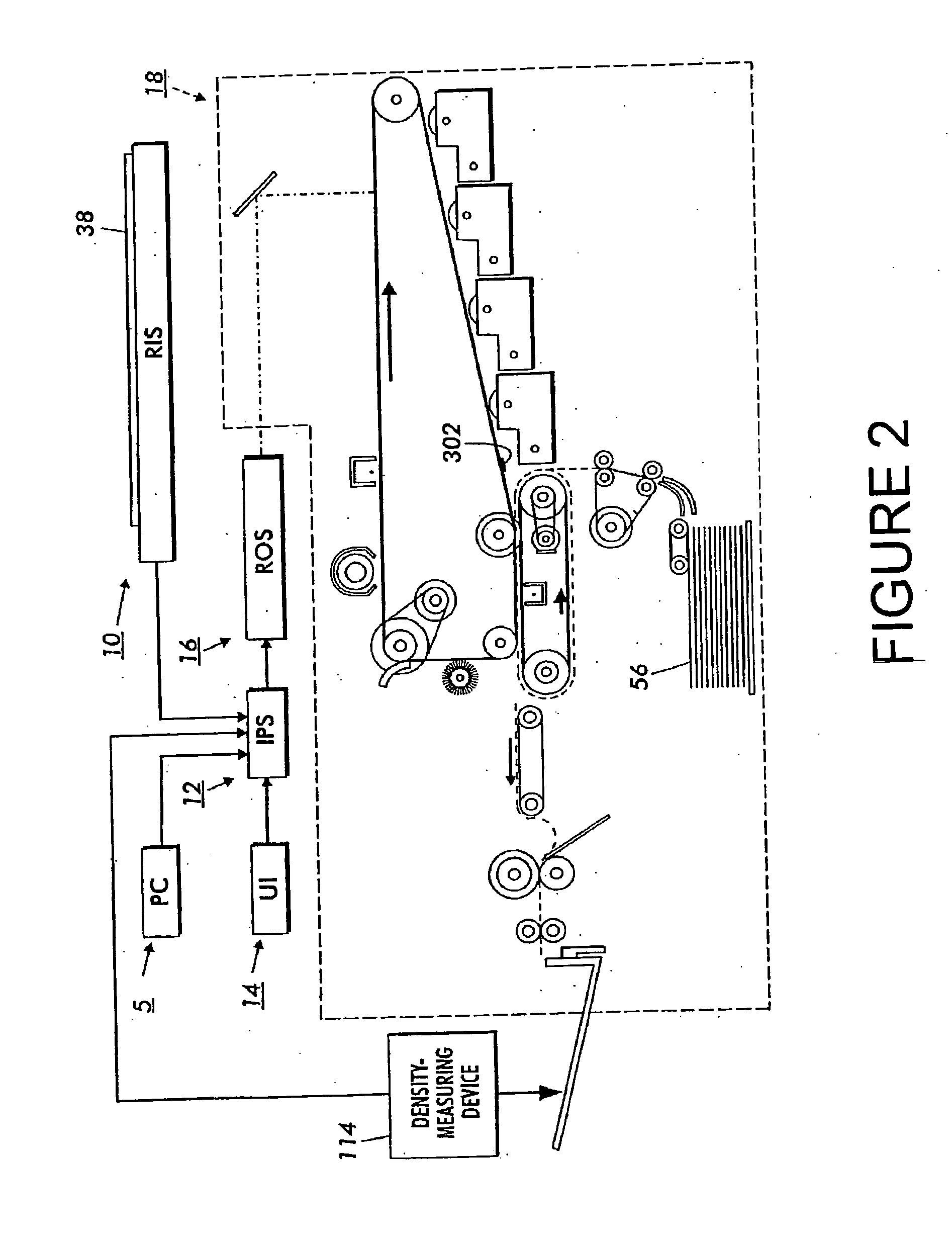Method and system for processing scanned patches for use in imaging device calibration
a technology for imaging devices and patches, applied in colour separation/tonal correction, digital marking record carriers, instruments, etc., can solve the problems of less-than-efficient calibration tasks and printers, and achieve the effects of reducing noise, reducing noise, and reducing nois
- Summary
- Abstract
- Description
- Claims
- Application Information
AI Technical Summary
Benefits of technology
Problems solved by technology
Method used
Image
Examples
Embodiment Construction
[0064]FIG. 1 shows a system that prints test patches, measures color output values of the test patches, and calibrates the color output characteristics of the system based upon the measured color output values. The system includes an arrangement 100 according to the presently described embodiments, an image source 112, a print medium 113, and a color-measuring device 114.
[0065] The arrangement 100 includes an input 102, a processor 104, a memory 106, a printing device 108, and an output 110. In general, the arrangement receives at the input 102 an image and generates at the output 110 printed pages of recording media from which the image may be physically reconstructed.
[0066] The image source 112 can be any suitable device that generates image data corresponding to a two-dimensional image. The image source 112 is further configured to provide image data corresponding to an array of rows and columns of test patches that are used to calibrate the arrangement 100, as will be discusse...
PUM
 Login to View More
Login to View More Abstract
Description
Claims
Application Information
 Login to View More
Login to View More - R&D
- Intellectual Property
- Life Sciences
- Materials
- Tech Scout
- Unparalleled Data Quality
- Higher Quality Content
- 60% Fewer Hallucinations
Browse by: Latest US Patents, China's latest patents, Technical Efficacy Thesaurus, Application Domain, Technology Topic, Popular Technical Reports.
© 2025 PatSnap. All rights reserved.Legal|Privacy policy|Modern Slavery Act Transparency Statement|Sitemap|About US| Contact US: help@patsnap.com



